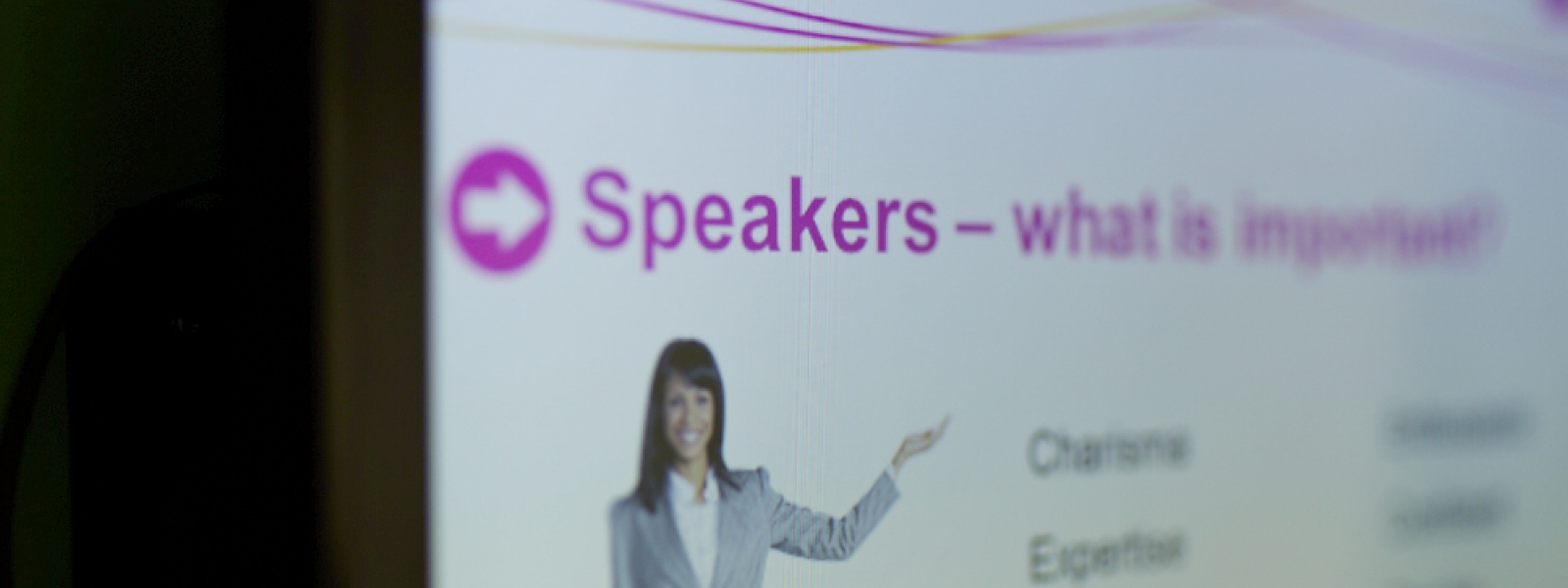Mar
07
2013
Presentation skills: how to get started
Preparation is at the heart of an effective presentation.
Before you even begin to develop your presentation, you will need to find out who the audience is and what is expected of you.
Basic details (who, what, why, where, when?)
When you are asked to give a presentation make sure you know:
Who? Who is going to be there, how big the audience is likely to be, what they expect?
What? What is at the event? What is your brief? What is the title of your presentation? What will you be expected to cover? Who else is speaking - where do you fit in? If there are other speakers, is it a debate, are all speakers exploring different aspects of the same theme? What type of presentation is expected (keynote, workshop, lecture etc.). Will they need a copy of your presentation (by what date?)?
Why? Why have they asked you to speak (rather than someone else)? What is the purpose of the event, why is it being held?
Where? Where is it being held? The address (and do you need a map, travelling instructions to get there?). What is the layout of the room, will you be able to change it? Tell the organisers if you need any special facilities.
When? When is the date and time of the presentation? Will there be other presentations, earlier in the event, that you should have heard of before giving your presentation? How long are you expected to speak for? Will there be questions?
Your audience
Find out as much as you can about your audience, for example:
- Men/women
- Cultural issues/language
- Age
- Socio-economic group(s)
- Why are they going to be attending? What do they expect? What do they need from you?
- Experience of the issues
- Did they specifically ask for you to be the speaker? If so, why?
- Are there any particular people in the audience you should know about?
- Dress code?
Remember the pecking order - the audience is more important than you. They can choose to accept or reject what you say, and you want them to accept!
The aims of the event
Find out as much as you can about the event itself.
- What is this event/meeting/conference for?
- What should it achieve?
- Will everyone attending have the same ‘agenda'?
- Is it part of a regular cycle of events or is it a one-off?
Find out more
This article was taken from the Centre's published book How to become a brilliant presenter by trainer Tess Woodcraft. Available to buy online, for only £12.99 (plus p&p), this book will help you think through how to prepare, how to assemble and structure your content and, perhaps most important of all, how to overcome your nerves and give a confident, professional and high impact presentation.


